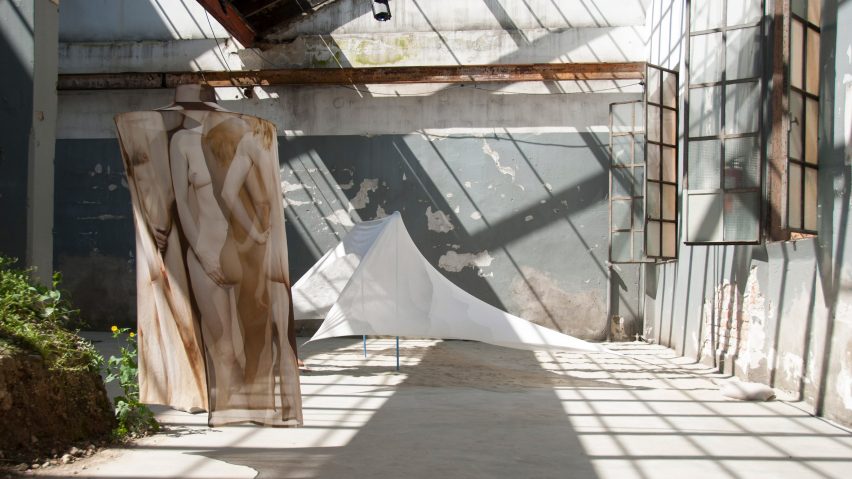
Belén presents textile-based alternatives to "harmful" sunscreens
Dutch design studio Belén has created a line of all-natural, textile-based products that are designed to be used in place of sunscreen lotions and polyester sunshades.
Designed to harness the positive effects of exposure to the sun, the textile-based products include clothing, accessories, parasols and tents. They were all conceived as part of SUN+, a research project into sun protection.
The products were presented at Alcova, a design show in a former panettone factory, during Milan design week.
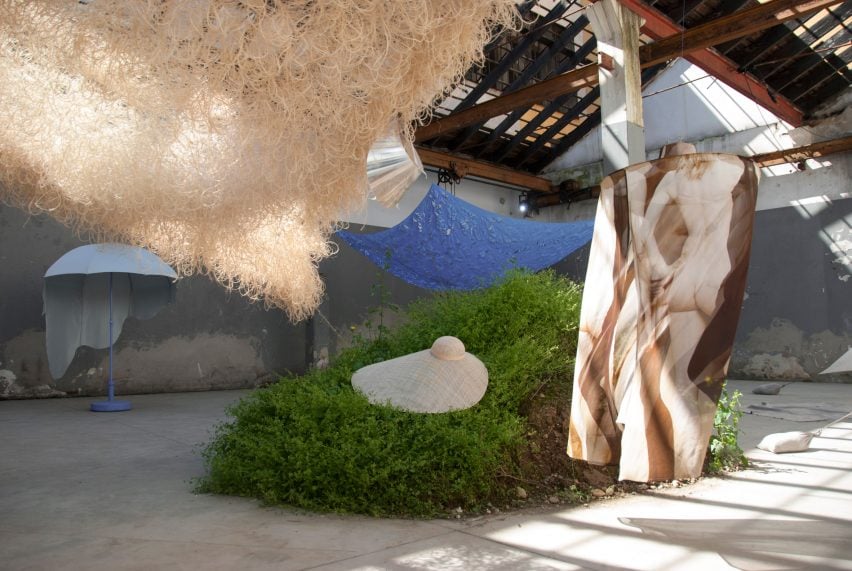
"Overexposure to sunlight is harmful, but so is overprotecting," explained Belén founders Brecht Duijf and Lenneke Langenhuijsen. "Sunscreen products currently on the market, however, come with serious disadvantages that outweigh their usefulness in the long run."
"Chemical suncreams and lotions can damage the skin and are bad for the environment," they added, highlighting that empty bottles of sunscreen often end up in the ocean where they form a plastic soup on the water's surface, blocking the UV that is needed to support local maritime ecosystems.
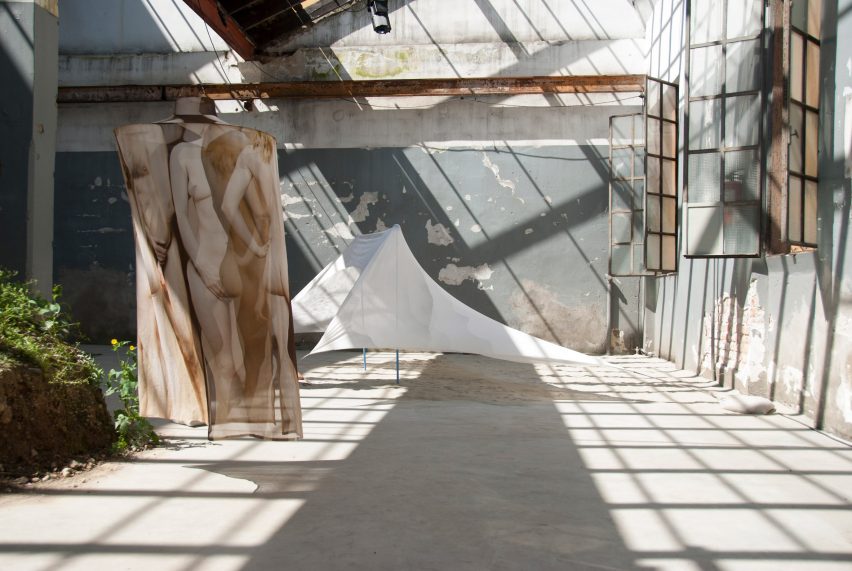
The studio's SUN+ research project aims to come up with design-based solutions for these problems.
"We have started out with taking stock of the alternative ways — and alternative materials — we can use for a healthy and clean life in the sun," said the studio.
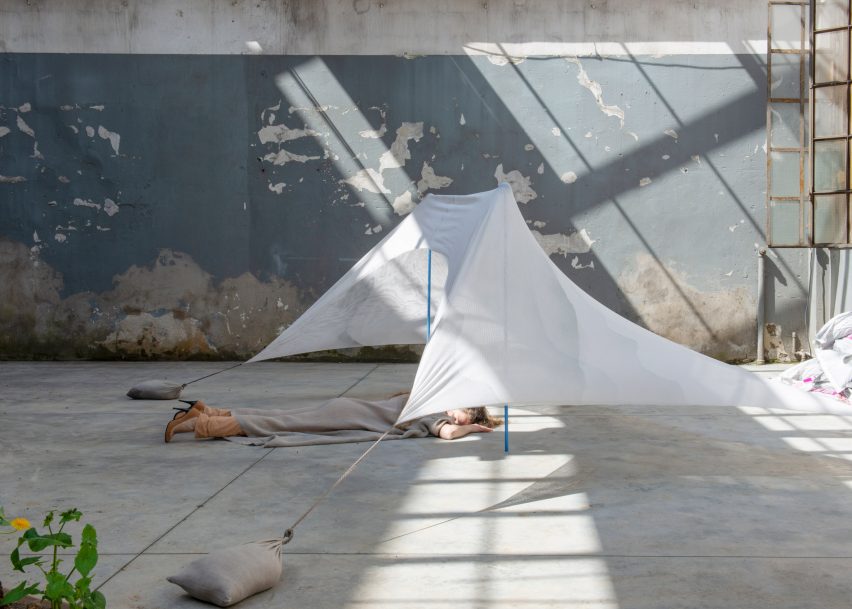
"Our planet and our body are the concerns that lay at the core of this project, which already has generated a number of products, including wearables, a tent and a UV translucent parasol."
The sunscreen products include a hat, veil and tent made from lightweight fabrics such as linen. Belén calls this collection Factor 8.
"The 'ideal' factor is UPF (Ultraviolet Protection Factor) eight," the studio explained. "It provides protection and keeps the vitamin D production going."
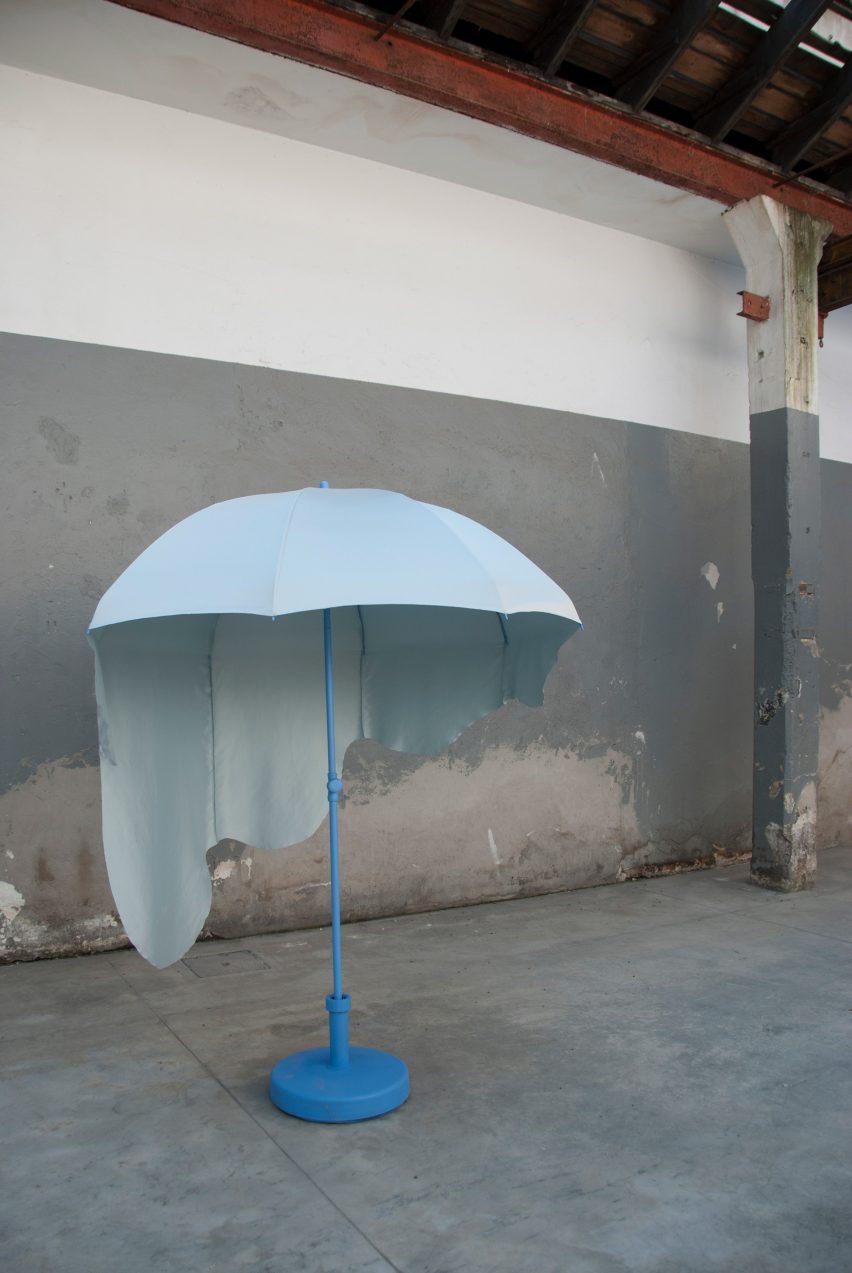
The standout Factor 8 design is SUNveil, a wide-brimmed hat with a sheer veil that envelopes the body. The featured print explores different cultural attitudes towards sun protection while also offering the wearer a degree of privacy
Langenhuijsen told Dezeen: "We studied the openness of fabrics. Nowadays they make everything from synthetics which are all the equivalent of factor 50, which blocks put the sun completely. We want to play with natural materials and transparency so that you can play with how you protect yourself."
Other pieces presented included a parasol called Prosol D, which is made from a biopolymer fabric specially developed by the studio. "As much as possible, the biopolymer fabric lets good UV in, and blocks bad UV," Duijf told Dezeen.
"We can also play with thickness of the fabric," she continued. "So you can choose a very thin fabric which, for example, is good for getting your vitamin D in a two-minute lunch break, whereas a thicker fabric would be good for a long lunch when you have more time at the weekend. You can plan your time around your fabric."
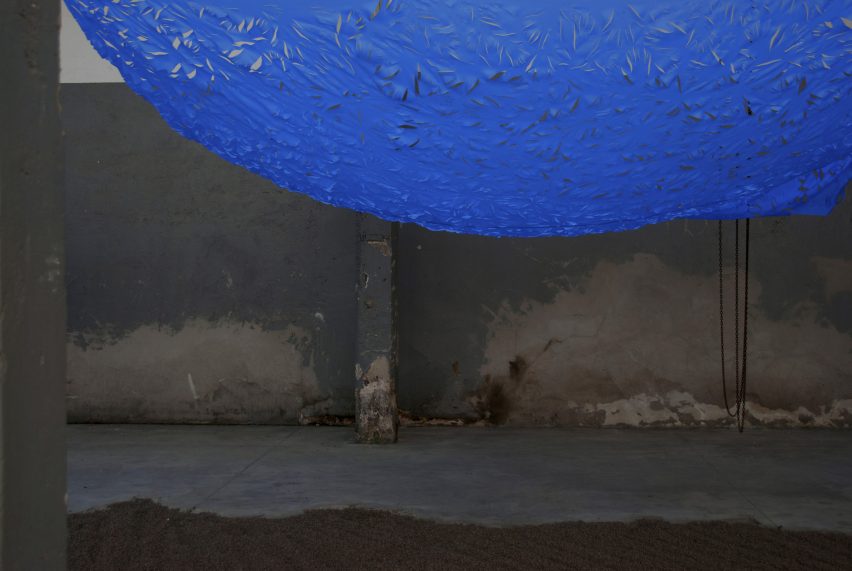
In addition to the Factor 8 and Prosol D collections, the studio presented Shade Cloth, a series of shade sails that can be strung up to create areas of shade.
"The shades are playing with the light, creating patterns – a portable tree in a sense," Langenhuijsen told Dezeen.
While the Shade Cloth Handy features overlapping cut-outs in the shape of human hands, the second Shade Cloth, Sisally, is made from thick sisal fibres. Its voluminous, open construction is designed to recall a cloud that offers shade on a summer's day.
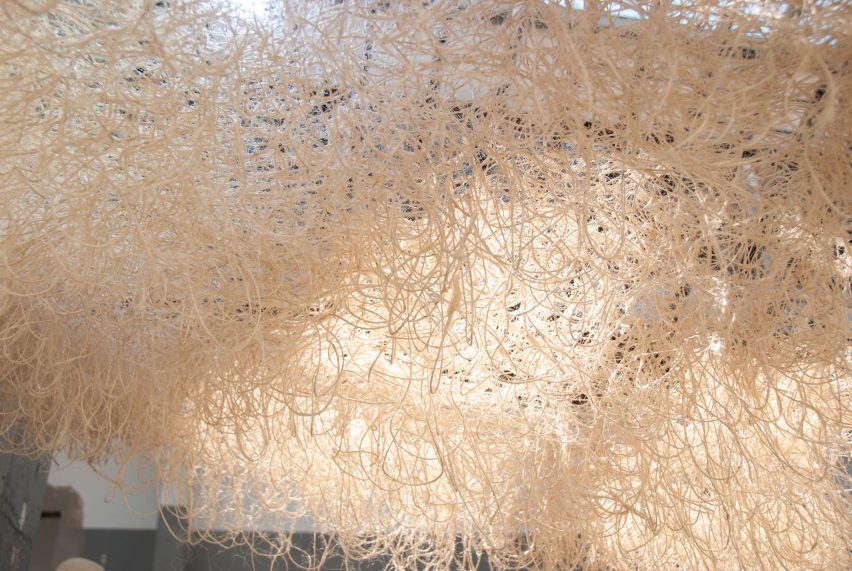
The studio's research has resulted in two books that explore the relationships different cultures all over the world have with the sun, and how they expose and protect themselves.
"Rethinking the physicality of sunscreen is key, as the sun is the source of our life," concluded the studio.
Alcova was open from 17 to 22 April as part of Milan design week 2018.
Also showing at Alcova was British designer Lara Bohinc, who presented her first collection of chairs, and Royal College of Art graduate Christophe Machet, who uses a huge custom-built CNC machine to transform sewage pipes into chairs.